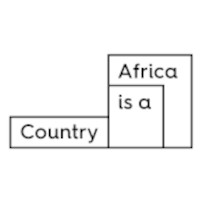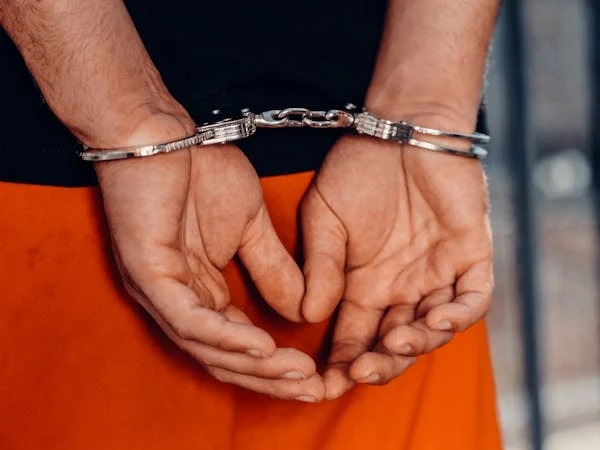President Tinubu’s reforms have plunged Nigerians into economic despair, with soaring costs and violent repression, exposing the brutal toll of neoliberal policies.
Swearing-in ceremony of Nigeria’s President Bola Ahmed Tinubu, Abuja, 2023. Image credit Paul Kagame via Flickr CC BY-NC-ND 2.0.
The month of August saw mass protest erupt in the West African country of Nigeria. Spurred by anger over a cost-of-living crisis and drawing inspiration from the Kenya’s youth revolt, the #EndBadGovernance protests became a rallying point for calls to take action to curb inflation and reverse the hike in prices of fuel, electricity, and food. But instead of answers to the cost-of-living problems, the protests were met with water cannons and live bullets in most parts of the country, and especially in Northern Nigeria where at least 40 protesters were reportedly shot dead by security forces. This violence was also accompanied by a string of Gestapo-style arrests of alleged protest leaders and sponsors, many of whom were legally under-aged.
Characteristically, the Nigerian authorities promptly denied that any killing took place, with the inspector general of police on one occasion saying his men did not fire any live bullets. However, a new report released by Amnesty International has exposed the gory details of the repression that unfolded while the protest lasted. Titled “Bloody August: Nigerian Government’s Violent Crackdown on #EndBadGovernance Protests,” the report present a chilling insight into the brutal class war unfolding in Africa’s most populous country as an unpopular pro-West regime employs state terror to try to accelerate the full liberalization of Nigeria’s economy—an IMF/World Bank–inspired project from the 1980s, which had moderately slowed down under the previous administrations.
Seventeen months ago, barely minutes after he was sworn into office, President Bola Ahmed Tinubu, in an off-cuff remark that deviated from his written speech, announced the removal of the prevailing petrol subsidy. Hardly had the newly elected president left the Eagle Square, venue of the elaborate ceremony that ushered him into office, that the immediate effect of his imperious announcement began to manifest. Across the country, a condition of a partial strike developed as society came to a momentary halt. Queues surfaced at petrol stations as many motorists embarked on panic buying of petrol while thousands of commuters, including workers and students, were stranded at bus stops nationwide as transport fare rocketed.
At the time, Tinubu’s action was viewed by many as either a product of hubris or, worse, a stroke of madness. Later on, in a speech to a group of Nigerians in Paris, the president would try to cast his action in ethereal halo by saying he was seized by a sudden confidence. However, in hindsight, it has become clear that Tinubu’s action on May 29 is only a foretaste of the shock therapy that would define his regime’s methodology in the execution of the neoliberal project. In opposition to the gradualism of the Buhari years, which earned him the sobriquet “Baba Go Slow,” Tinubu’s approach consists of three parts: shock, awe and shock again. Before Nigerians had fully taken in the impact of the rocketing petrol prices, the regime went ahead to devalue the currency. By the time Nigerians were beginning to reel from the consequences of the foreign-exchange fiasco that ensued, the full impact of the band classification for electricity supply—effectively a dramatic hike in electricity costs—introduced by the outgoing Buhari regime about six weeks before leaving power, began to kick in, to the chagrin of household and industries.
Nearly two years after, not only has the price of petrol defied the laws of gravity but the combined effect of other neoliberal reforms also introduced in quick succession by the regime have plunged the Nigerian people into the worst cost-of-living crisis in nearly three decades. While prices of food and fuel have risen by 61 percent and 355 percent respectively in the last 16 months, wages have declined in real value. The result is that many are starving as transport and energy costs take up nearly all of people’s monthly wages. Tragically, over 80 percent of Nigerians work in the unregulated informal sector where the national minimum-wage law is hardly respected. Also many are out of jobs with over 11 companies leaving the shores of the country within the first year of the regime’s existence. Despite this, the privilege and opulent lifestyle of the ruling elite has continued with the president taking delivery of a new Cadillac Escalade and an Airbus 330 aircraft costing US$150 million in the midst of the general hardship.
In pure military terms, shock and awe—a rapid dominance strategy involving the utilization of overwhelming power to paralyze an adversary—is meant to demoralize the enemy making it incapable of resistance. Tinubu’s shock therapy was aimed at exactly the same goal, hence the regime’s knee-jerk response as the cloud of resistance began to gather from early July until it broke out the following month.
In their report, Amnesty International presents the gory details of excessive force utilized by security forces, principally the police and the army, to quell the protest. According to the report, at least 24 protesters were killed in Kano, Katsina, Jigawa, Niger, and Borno States but other accounts show that the death toll is much higher. “In almost all cases the victims were shot by the police—firing live ammunition at close range, often at the head or torso, suggesting that they were shooting to kill. Of the survivors interviewed, two protesters suffered gunshot injuries after being shot in the arm and leg by the police. Several survivors were suffocated by indiscriminate use of tear gas,” the report claimed.
Some of the victims did not even participate in the protest, demonstrating how vicious the repression was. For instance Nana-Firdausi Haruna, 30 years old, was cooking a meal for her family when she decided to step out to buy charcoal. She never made it back home. The same goes for 20-year-old Salahuddeen Umar who was shot and killed while seeing off his friends who came to check on his well-being because he had been ill for days. Similarly, five-year-old Muhammad Sani was playing with other kids in front of their house when a bullet pierced his lap. Abduljal Yusuf of Rijiyar Lemo in Kano state was shot dead in his provision store while 20-year-old Fa’izu Abdullahi was accosted by policemen who ordered him to raise his hands, which he did, yet he was still shot dead.
If the state-orchestrated propaganda and threat that presaged the protest was anything to go by, they showed a regime in momentary panic about the prospect of the mass movement, if allowed to develop, upending the status quo. Recent events on the continent have shown how even small protests on any economic or democratic issue can supercharge underlying grievances while rapidly becoming a rallying point for a mass revolt. Therefore, the gratuitous repression against the August protest was an action of a state grappling for survival, as are the allegations of a “Russian plot” and the ongoing trial of protesters for treason, which in Nigeria’s laws carry a death sentence.
Suffice to note that Tinubu had come to power after winning the lowest vote cast for any Nigerian president since 1979. He was elected by just 8.7 million voters—10 percent of the total number of registered voters and 36 percent of votes cast. Whatever slight social base the regime had managed to retain following the 2023 elections had gradually collapsed as the economic catastrophe of the neoliberal reforms tore through society. Ordinarily, if there was any regime ill-suited to implement IMF/World Bank neoliberal reforms, it is the Tinubu regime. Former President Goodluck Jonathan, a more popular president, was nearly overthrown in January 2012 when he made a similar attempt. Yet it is this lack of any real support at home that is acting as a compelling factor for the regime to act not only as the evangel of neoliberalism within Nigeria but also the poster boy of Western interest within the region. To do either, however, requires a social base the regime is lacking; hence the turn towards the police and the army to suppress and awe.
Wider afield, we see the iteration of the same pattern. Kenyan President William Ruto’s attempt to accelerate the neoliberal agenda catapulted him overnight from a president with a measure of popularity, because of his rags-to-riches history, to one whose political career now hangs by a thread. According to official figures, nothing less than 39 protesters were killed, 361 were injured, and 627 were arrested during the anti–Finance Bill protests in the East African country. This is in addition to at least 32 cases of “enforced or involuntary disappearances.” In the end, therefore, it can be safely averred that violent repression of civil liberties is an inevitable concomitant of the implementation of neoliberalism. In the case of Nigeria, the event of August may well be the first steps toward the consolidation of a civilian capitalist dictatorship.
Taken as a whole, the Amnesty International report presents damning evidence of extrajudicial murder against the Nigerian state and its appurtenances of repression. Sadly, there is no guarantee that anything will come out of this exposé. This is not the first time the Nigerian state has murdered innocent citizens without consequence. During the #EndSARS protest four years ago, a judicial panel of inquiry set up by Lagos State found the army responsible for the killing of at least 12 protesters in a brutal crackdown at Lekki toll gate on October 20, 2020. The report also recommended a number of people for sanctions, including officials of government and private persons, who played direct and indirect roles in the tragedy. Up till today, no one has been brought to justice for the killings.
In all likelihood, a similar fate may befall this new report unless activists, civil society groups, and unions are able to ramp up pressure on the regime to act. The potential for even limited action to have an effect was demonstrated early last month when social media outrage forced the regime to hastily free sick and malnourished underage protesters arrested in connection with the #EndBadGovernance protest, when footage of their arraignment in court set the internet agog.
Due to the lack of serious public engagement with the report, the inspector general of police appears to want to seize the initiative by promptly announcing an investigation even while simultaneously describing the report as “falsified and confusing.” Of course, it goes without saying that such a probe conducted by the police will not serve the cause of justice. The Amnesty International report implicated the entire police force, so any real investigation can only come from without, not within. This is why it is now urgent for activists to begin to organize online campaigns and physical actions, including protest rallies and demonstrations to demand the immediate constitution of an independent and public probe into the brutal repression of the #EndBadGovernance protest.






